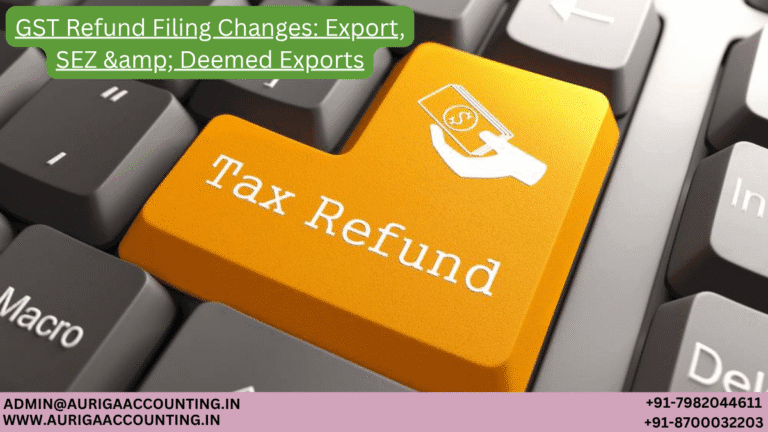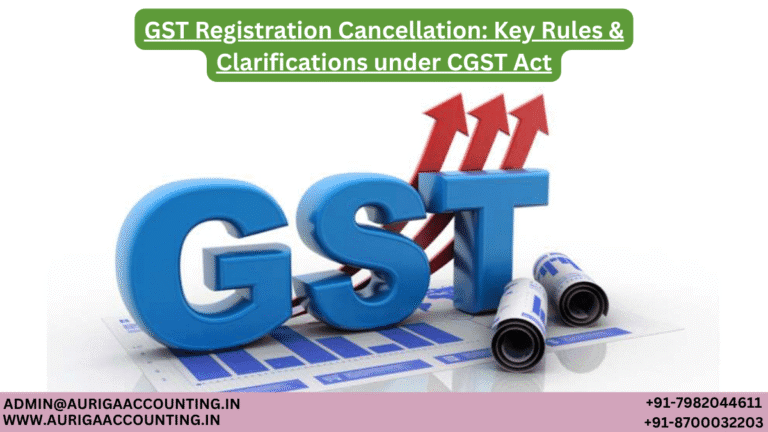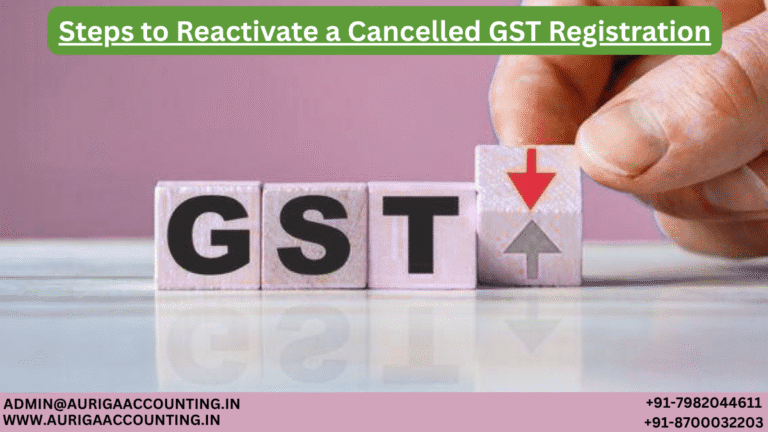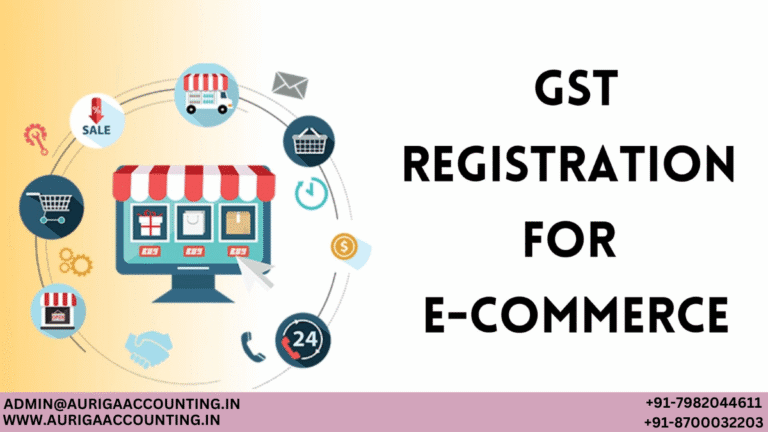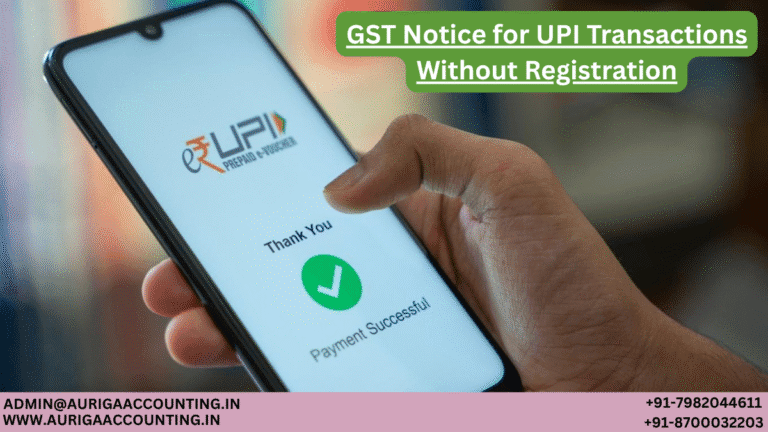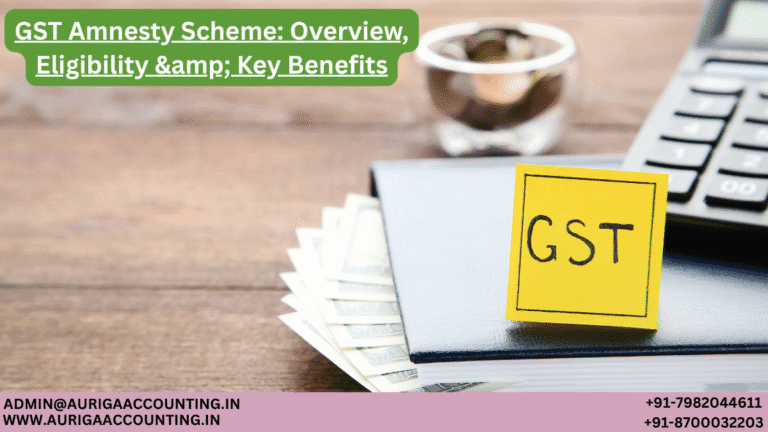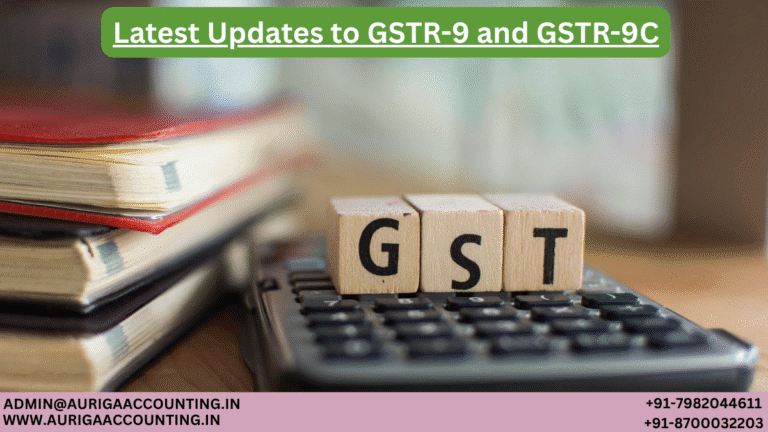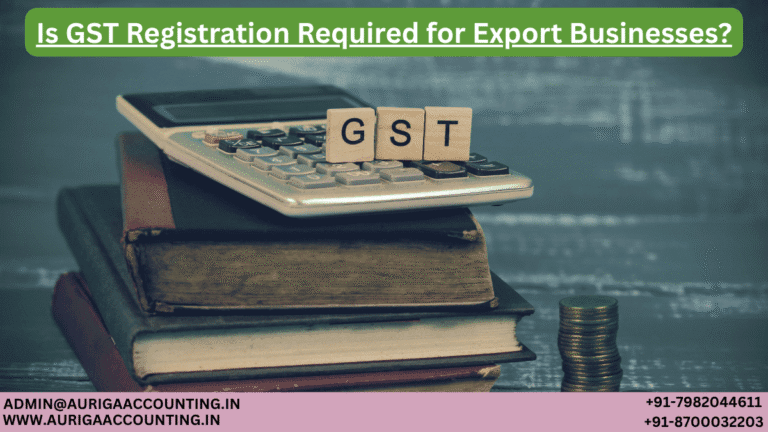
HOW TO I GET GST FOR MY BUSINESS?
Introduction
ToggleHOW TO I GET GST FOR MY BUSINESS?
To register for Goods and Services Tax (GST) for your business in India, visit the official GST portal (www.gst.gov.in) and navigate to the “Services” tab. Select “Registration” and fill out the GST registration form online. Provide necessary details such as business name, PAN, Aadhaar, bank account details, and business address. Upload required documents, including proof of business ownership and address. After submission, you’ll receive an Application Reference Number (ARN). The application will be processed, and upon approval, you’ll be issued a GSTIN (GST Identification Number). Regularly check the status of your application on the GST portal. Visitofficialwebsite
process of get gst for my business
Certainly! Here’s a concise set of points outlining the process of getting Goods and Services Tax (GST) for your business in India:
Eligibility Check:
- Ensure your business meets the eligibility criteria based on the annual turnover threshold (commonly Rs. 20 lakhs).
Create GST Portal Account:
- Visit www.gst.gov.in and register for a new account as a taxpayer.
- Verify your email and mobile number using the OTP received.
Temporary Reference Number (TRN):
- Log in with the TRN received.
- Complete the necessary details to generate the TRN.
Fill GST Registration Form (REG-01):
- Log in with the TRN and complete the GST registration form with accurate business details, including PAN, structure, and address.
Upload Required Documents:
- Scan and upload essential documents like PAN card, Aadhaar card, business registration certificate, and proof of address.
- Attach a passport-sized photograph.
Verify Bank Account:
- Provide bank account details along with a canceled cheque or bank statement.
Submit Application:
- Review the entered information and submit the application on the GST portal.
Application Reference Number (ARN):
- Upon submission, receive an Application Reference Number (ARN) for tracking.
GST Officer Review:
- The GST officer reviews the application; additional information may be requested if needed.
Physical Verification:
- A GST officer may conduct physical verification of your business premises in some cases.
- GSTIN Allotment:
- Upon successful verification, receive the GST registration certificate.
- Obtain the unique Goods and Services Tax Identification Number (GSTIN).
- Display GSTIN:
- Display the GSTIN prominently at your business premises for credibility.
- Regularly Check Application Status:
- Keep track of your application status using the ARN on the GST portal.
- Stay Informed:
- Stay updated on any changes in GST rules or procedures that may affect your business.
- Seek Professional Assistance if Needed:
- If the process seems challenging or if you have specific questions, consider consulting a tax professional or reaching out to the GST helpdesk for guidance.
Remember, each step is crucial for a smooth GST registration process, and accuracy in information and document submission is key to successful registration.
documents required to get gst for my business
To obtain Goods and Services Tax (GST) registration for your business in India, you’ll need to provide certain documents. Here’s a list of essential documents required for GST registration:
Proof of Business Registration:
- For Proprietorship: Any document that establishes the existence of the business, such as a shop and establishment certificate or a municipal corporation certificate.
- For Partnership: Partnership Deed.
- For Company: Certificate of Incorporation.
Identity and Address Proof of Promoters:
- PAN card of the proprietor/partners/directors.
Photograph of Promoters:
- Passport-sized photographs of the proprietor/partners/directors.
Address Proof of Business:
- For Owned Property: Any utility bill or property tax receipt.
- For Rented Property: Rent agreement along with a utility bill or property tax receipt.
Bank Account Details:
- A canceled cheque or bank statement clearly showing the bank account number, the branch address, and the IFSC code.
Authorization Letter:
- An authorization letter in case the application is being filed by an authorized signatory.
Additional Documents:
- Depending on the type of business and nature of transactions, additional documents may be required. For example, if the business deals with goods, a photograph of the business place may be required.
It’s crucial to ensure that all documents are clear, valid, and up-to-date. Any discrepancies or incomplete information may lead to delays or rejection of the GST registration application.
Once you have gathered all the necessary documents, you can initiate the registration process on the official GST portal (www.gst.gov.in). Follow the steps outlined in the registration form, upload the required documents, and submit the application. Regularly check the application status using the Application Reference Number (ARN) provided, and comply with any additional requests for information from the GST authorities. Upon successful verification, you’ll be issued a GSTIN (Goods and Services Tax Identification Number), and your business will be officially registered under the GST regime.
benefits of gst for my business
Goods and Services Tax (GST) in India has brought several benefits for businesses. Here are some key advantages:
Streamlined Tax Structure:
- GST has replaced multiple indirect taxes, creating a unified tax system. This simplifies tax compliance for businesses as they deal with a single tax instead of navigating a complex web of taxes.
Input Tax Credit:
- Businesses can claim input tax credit for taxes paid on purchases. This means that the tax paid on raw materials and services can be deducted from the tax collected on sales, reducing the overall tax liability.
Wider Market Access:
- With the elimination of entry taxes and other barriers, businesses can expand their market reach. GST facilitates seamless interstate trade, allowing businesses to operate more efficiently across state borders.
Reduced Cascading Effect:
- The cascading effect of taxes (tax on tax) has been significantly reduced with the introduction of GST. This ensures that businesses are taxed only on the value added at each stage of the supply chain.
Easier Compliance:
- GST compliance procedures are relatively simpler compared to the previous tax system. The online portal makes it easier for businesses to file returns, make payments, and stay compliant with the tax laws.
Composition Scheme:
- Small businesses with a turnover below a certain threshold can opt for the Composition Scheme, which offers a simplified compliance process and reduced tax rates.
Legal Recognition:
- GST registration provides legal recognition to businesses. It enhances their credibility and makes them eligible for participating in government tenders and trade-related activities.
Uniform Tax Rates:
- GST has standardized tax rates across various goods and services categories. This reduces confusion and ensures a more consistent and predictable tax environment for businesses.
Technology Integration:
- The GST system is technologically driven, promoting efficiency and transparency. The online portal facilitates electronic filing, e-payments, and real-time tracking of transactions.
Reduction in Tax Evasion:
- The implementation of GST has increased transparency in the tax system. The use of technology in the form of e-way bills, GST returns, and online verification helps in curbing tax evasion.
difficulties of get gst for business
While Goods and Services Tax (GST) brings several benefits for businesses, there are also challenges and difficulties associated with obtaining GST registration. Here are some common difficulties businesses may face:
Complex Registration Process:
- The GST registration process can be perceived as complex, especially for small business owners who may not be familiar with online registration procedures.
Technical Glitches:
- Technical issues or glitches on the GST portal can hinder the smooth submission of applications, causing frustration for businesses.
Document Verification Delays:
- The verification of documents and processing of applications by GST officers may take time, leading to delays in obtaining GST registration.
Physical Verification:
- In certain cases, GST officers may conduct physical verification of the business premises, which can be time-consuming and may disrupt regular business operations.
Changes in Business Structure:
- Changes in the business structure, such as mergers, demergers, or changes in ownership, can complicate the GST registration process and may require additional documentation.
Rules and Compliance:
- Understanding and keeping up with the various rules and compliance requirements under GST can be challenging for businesses, leading to unintentional errors in the registration process.
Update of Business Information:
- Businesses are required to keep their business information updated on the GST portal. Failure to do so may lead to non-compliance and potential penalties.
Mismatch in Information:
- Discrepancies or mismatched information in the application or supporting documents may lead to objections from GST officers, requiring businesses to provide additional clarifications.
Multiple Registrations:
- Businesses operating in multiple states may need to obtain separate GST registrations for each state, increasing the administrative burden.
Education and Awareness:
- Lack of awareness and understanding of GST rules and procedures may result in businesses not fully utilizing the benefits of GST or inadvertently violating compliance requirements.
Transition Challenges:
- Businesses transitioning from the earlier tax regime to GST may face challenges in reconciling and migrating their existing tax data to comply with GST requirements.
Input Tax Credit Reconciliation:
- Proper reconciliation of Input Tax Credit (ITC) can be a challenge, and errors in claiming ITC may lead to additional tax liabilities.
Despite these difficulties, it’s important to note that many businesses successfully navigate the GST registration process. Seeking professional guidance, staying informed about updates, and ensuring accurate and timely submission of documents can help mitigate these challenges. Additionally, businesses can leverage online resources and training programs provided by government authorities to enhance their understanding of GST regulations.
Can small businesses get GST
Yes, small businesses in India can register for Goods and Services Tax (GST) if their annual turnover exceeds the prescribed threshold limit. As of my last knowledge update in 2022, the threshold for mandatory GST registration is Rs. 20 lakhs of aggregate turnover (Rs. 10 lakhs for special category states).
Here are some key points regarding GST registration for small businesses:
Mandatory Registration:
- Small businesses whose annual turnover exceeds the specified limit are required to register for GST.
Voluntary Registration:
- Even if the turnover is below the threshold, businesses have the option of voluntarily registering for GST to avail the benefits and input tax credits.
Composition Scheme:
- Small businesses with an aggregate turnover up to a certain limit can opt for the Composition Scheme. This scheme offers simplified compliance requirements and allows businesses to pay tax at a fixed percentage of their turnover.
Threshold Limit:
- The turnover threshold limit may vary for certain special category states, so it’s essential for businesses to check the specific limit applicable to their state.
Benefits for Small Businesses:
- GST registration provides legitimacy to businesses and allows them to avail themselves of input tax credits, reducing the overall tax liability.
- Small businesses can benefit from the Composition Scheme if they meet the eligibility criteria.
Online Registration:
- The GST registration process is primarily conducted online through the official GST portal (www.gst.gov.in). It involves filling out an online application form and submitting the necessary documents.
Penalties for Non-Registration:
- Failure to register for GST when required can result in penalties. Therefore, it’s crucial for businesses to monitor their turnover and comply with the registration requirements.
Small businesses should keep track of their turnover and assess whether they meet the threshold for mandatory registration. Voluntary registration can also be considered to take advantage of the benefits offered under the GST system. Additionally, seeking advice from tax professionals or using online resources provided by the government can help small businesses navigate the GST registration process more efficiently.
Can a normal person get GST number
A normal individual, who is not engaged in any business or economic activity, is not eligible to obtain a Goods and Services Tax (GST) number. GST registration is primarily intended for businesses and entities that are involved in the supply of goods or services and meet certain eligibility criteria.
The following individuals or entities typically need to register for GST:
Businesses and Traders:
- Sole Proprietorships
- Partnerships
- Limited Liability Partnerships (LLPs)
- Companies
- Co-operatives
Service Providers:
- Professionals (e.g., doctors, lawyers, consultants)
- Service-oriented businesses
E-commerce Operators:
- Platforms facilitating the sale of goods or services online
Manufacturers and Distributors:
- Entities involved in the production or distribution of goods
Importers and Exporters:
- Businesses engaged in international trade
Individuals who are not conducting any business or economic activities that fall under the purview of GST are not required to obtain a GST number. For example, if someone is solely earning income from employment or investments and is not engaged in any business operations, GST registration is not applicable.
It’s important for individuals to assess their activities and determine whether they fall within the scope of GST registration requirements. If there is any uncertainty, seeking advice from tax professionals or consulting official GST guidelines can provide clarity on whether GST registration is necessary for a specific situation.
Can I run my business without GST
the requirement for Goods and Services Tax (GST) registration in India is determined by the annual turnover of a business. If your business has an annual aggregate turnover below the prescribed threshold limit (commonly Rs. 20 lakhs, but this threshold may vary for special category states), GST registration is not mandatory.
Here are some key points to consider:
Threshold Limit:
- If your business turnover remains below the specified threshold, you are not obligated to register for GST. It’s crucial to monitor your turnover regularly to ensure compliance.
Voluntary Registration:
- While not mandatory, businesses with turnover below the threshold have the option of voluntarily registering for GST. Voluntary registration can provide certain benefits, such as the ability to claim input tax credit.
Composition Scheme:
- Small businesses with an aggregate turnover up to a certain limit may opt for the Composition Scheme, offering simplified compliance and fixed tax rates.
Business Size and Scope:
- The decision to run your business without GST should be based on factors such as the nature of your business, customer base, and the extent of interstate transactions. If your business remains small-scale and local, and your turnover is below the threshold, GST registration may not be necessary.
Potential Advantages of GST Registration:
- While running a business without GST is possible for smaller enterprises, voluntary registration can be considered for potential advantages, such as increased credibility, eligibility for certain contracts, and the ability to claim input tax credit.
Consider Legal and Business Implications:
- It’s essential to understand the legal and business implications of not having GST registration. Some businesses may prefer voluntary registration to align with industry standards, facilitate interstate transactions, or benefit from the input tax credit mechanism.
Regular Monitoring:
- Business owners should regularly monitor their turnover to ensure compliance with any changes in the threshold limit or business expansion that may trigger mandatory registration.
Please note that tax regulations can evolve, and it’s advisable to check for any updates or changes in GST requirements. Additionally, consulting with a tax professional or seeking guidance from the official GST helpline can provide specific advice based on your business circumstances.
Who are not eligible for GST
Certain individuals and entities may not be eligible for Goods and Services Tax (GST) registration. As of my last knowledge update in January 2022, here are some cases where GST registration may not be applicable:
Individuals Not Engaged in Business or Economic Activity:
- If an individual is not involved in any business, trade, or economic activity and doesn’t meet the criteria for mandatory or voluntary registration, they may not be eligible for GST.
Exempt Supplies:
- Certain supplies of goods and services are exempt from GST. Individuals or entities exclusively dealing with exempt supplies may not require GST registration.
Suppliers of Non-Taxable Goods or Services:
- Individuals or businesses dealing with goods or services that are not subject to GST (non-taxable supplies) may not need to register for GST.
Casual Taxable Persons:
- Individuals who occasionally undertake transactions involving the supply of goods or services in a taxable territory and do not fall under the threshold limit may not be eligible for GST.
Threshold Limit Not Reached:
- Businesses with an annual aggregate turnover below the prescribed threshold limit (commonly Rs. 20 lakhs, but this limit may vary for special category states) may not be required to register for GST.
Special Category States:
- Different threshold limits may apply to businesses in special category states. If the turnover in such states is below the specified limit, GST registration may not be mandatory.
Non-Residents Making Taxable Supplies:
- Non-resident individuals or entities making only business-to-business (B2B) supplies and not affecting end consumers may not be required to register for GST.
It’s important to note that the eligibility criteria for GST may change, and the exemptions or thresholds may be revised. Additionally, specific industries or activities may have unique considerations. Therefore, it is advisable to check the latest GST regulations and consult with a tax professional for personalized guidance based on individual circumstances and any updates in the law.
conclusion
In conclusion, Goods and Services Tax (GST) in India has brought about significant changes in the tax landscape, streamlining the taxation system and fostering a more transparent and unified approach. The eligibility for GST registration is primarily based on the annual turnover of businesses, with mandatory registration for those exceeding the prescribed threshold limit.
For small businesses operating below the threshold, the decision to run without GST or opt for voluntary registration depends on various factors, including the nature of the business, market reach, and potential benefits such as input tax credit.
how auriga accountig help you to get gst of business
However, in Auriga, accounting firms and professionals can assist businesses in various aspects related to GST:
GST Registration:
- Accounting firms can guide businesses through the GST registration process, ensuring that all necessary documents are in order and submitted accurately.
Compliance and Filings:
- Accounting professionals can help businesses stay compliant with GST regulations by ensuring timely and accurate filing of GST returns.
Input Tax Credit (ITC) Management:
- Assistance in managing and optimizing Input Tax Credit, ensuring that businesses claim credits for taxes paid on eligible inputs.
Record Keeping and Documentation:
- Maintaining proper records and documentation required for GST compliance, including invoices, receipts, and relevant financial documents.
GST Audit Support:
- Providing support and guidance during GST audits, ensuring that businesses are prepared and in compliance with audit requirements.
Advisory Services:
- Offering advice on GST implications for specific business transactions, helping businesses make informed decisions.
Updates and Changes:
- Keeping businesses informed about any changes in GST regulations and ensuring that businesses adapt to new requirements.
Assistance with GST Refunds:
- Helping businesses navigate the process for claiming GST refunds when applicable.
It’s recommended to directly contact Auriga Accounting or any accounting firm you are considering to understand the specific services they offer, their expertise in GST matters, and how they can assist your business. Accounting firms play a crucial role in helping businesses navigate the complexities of GST and ensuring compliance with tax regulations.



